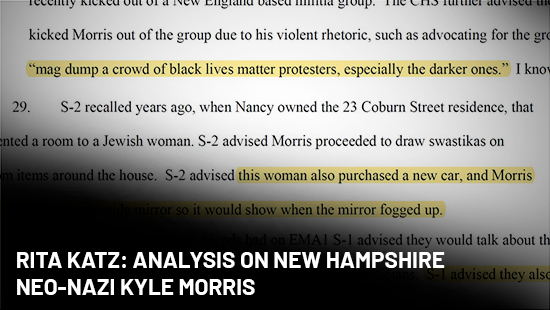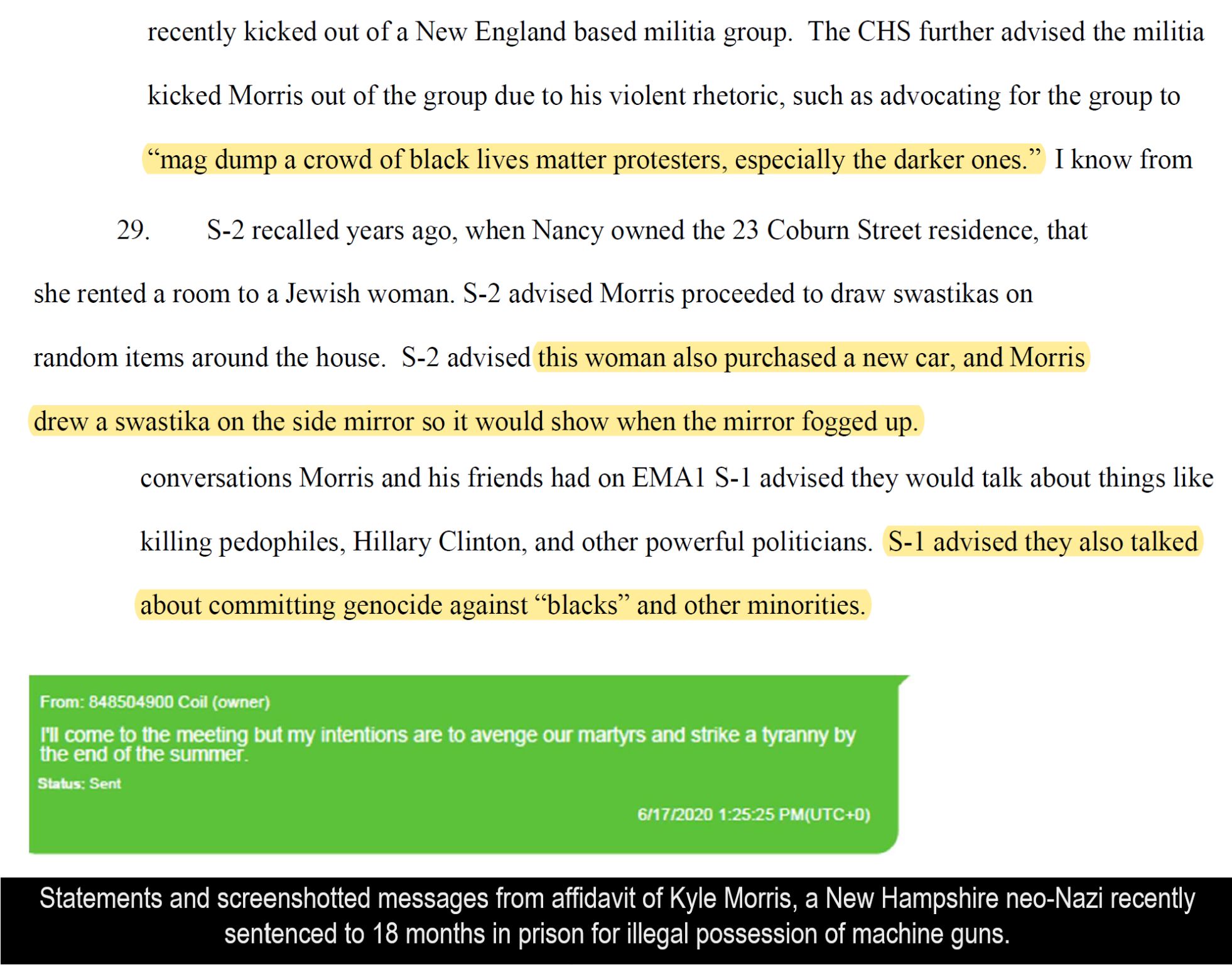
New Hampshire neo-Nazi Kyle Morris was sentenced to 18 months in prison for illegally owning a machine gun. However, the sentencing by itself doesn't present a full picture of how twisted he is.
Morris allegedly mused about genocide, killing politicians, and attacking synagogues. He also expressed a willingness to act some time in the future, demonstrating a similar type of frantic, brainwashed militancy seen in far-right terrorist attackers. Reading some of Morris’ digital communications, I’m grimly reminded of 2018 Pittsburgh synagogue attacker Robert Bowers, whose own hate-fueled compulsion I detailed in my recent book, Saints and Soldiers:
"In the two months leading to [Bowers'] attack, his posts and shares shed light on the toxic thinking behind his actions: conspiracy theories about 'filthy' Jews and their 'propaganda war,' Holocaust denial, fear of whites’ pending 'extinction,' and an existential imperative for whites to 'stand up.' From posted photos of his guns all the way to his threats against the target of his massacre, you could see the timebomb rapidly ticking toward detonation."
Yet nearly five years after Bowers' shooting, the government and tech sector still lack comprehensive strategies to address the online cesspools producing extremists. Morris is just one of the latest bits of proof. And the problem is only getting worse—which is frustrating, given that there are proven solutions at hand, as I detail in my book.







